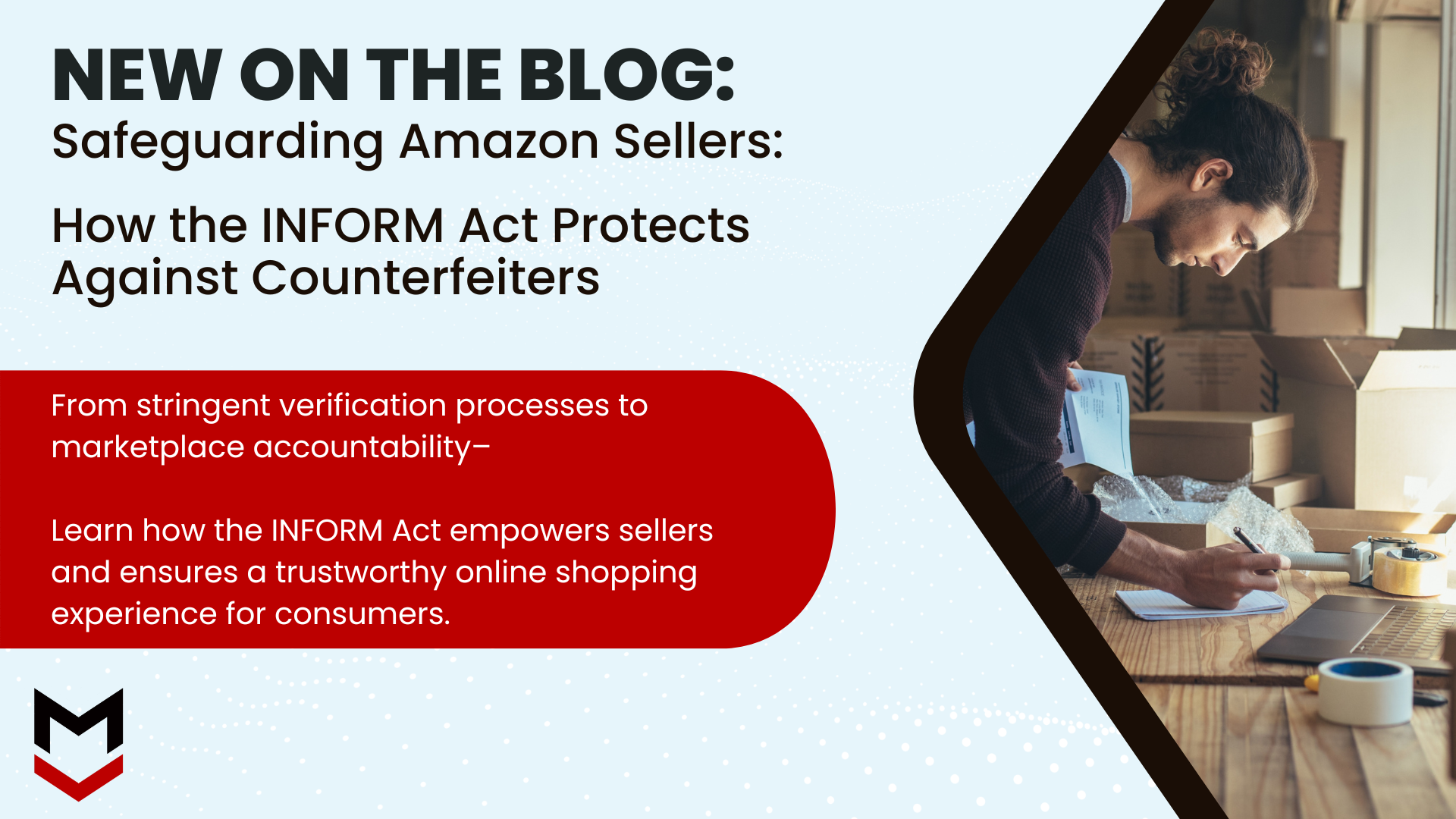Counterfeit and stolen goods have long plagued the e-commerce landscape, posing significant challenges for online retailers. In an effort to combat this issue and provide greater transparency to marketplaces, the Integrity, Notification, and Fairness in Online Retail Marketplaces for Consumers Act (INFORM Act) has been enacted. This legislation aims to protect small businesses from sellers of counterfeit and stolen goods while holding online platforms accountable. In this blog post, we delve into the key provisions of the INFORM Act and how it seeks to safeguard Amazon sellers and other online retailers.
Enhancing Verification Process
Effective from June 27, 2023, the INFORM Act imposes stringent requirements on third-party sellers, specifically those conducting more than 200 transactions and generating $5,000 in revenue within a 12-month period. These sellers are now mandated to provide information such as government IDs, tax IDs, bank account details, and comprehensive contact information to major online marketplaces like Amazon, eBay, and Target. This robust verification process aims to authenticate seller identities, effectively driving organized retail crime groups away from online marketplaces. Moreover, the INFORM Act holds marketplaces responsible for facilitating the sale of illicit items, ensuring they face penalties for non-compliance.
Fighting International Counterfeit Trade
Shady sellers around the world have been notorious for offering counterfeit and stolen merchandise at discounted prices, creating a pressing need for government intervention. Industry experts, including Jason Boyce, the founder of digital marketing firm Avenue 7 Media, have emphasized the importance of online platforms like Amazon taking decisive action against the sale of unsafe and counterfeit products, noting, “I hope that Amazon rediscovers the valuable protective layer that U.S. sellers provide for its customers and takes proportionate action to address the sale of unsafe, counterfeit products.” With Amazon’s third-party seller service revenue reaching an impressive $117.7 billion in 2022, comprising approximately 23 percent of its total revenue, the implications of counterfeit trade cannot be understated. In 2020, to address the rise in counterfeit activities, Amazon launched its Counterfeit Crimes Unit, collaborating closely with law enforcement agencies to tackle illicit operations. The company works hand-in-hand with brands to gather vital information about intellectual property and products. Despite these efforts, organized retail crime continues to surge. In fact, the National Retail Federation reported a substantial 26.5 percent increase in such activities among U.S. retailers between 2020 and 2021.
Marketplace Accountability
As a leading player in the e-commerce industry, Amazon has long maintained a zero-tolerance policy towards counterfeit products. The company proactively implements measures to prevent the listing of counterfeit items and constantly monitors its platform for any violations. Expressing their support for the INFORM Act in a statement to Inc. Amazon said, “We applaud the new Inform regulation in establishing a baseline expectation for the entire industry and one that is nationally consistent and will help ensure that small businesses selling products online do not encounter different rules or regulations on a state-by-state basis.” The hope is that by holding marketplaces accountable, the act ensures a more robust framework to protect both customers and brands.
Additionally, monitoring and policing unauthorized third-party sellers have posed significant challenges for brands. The INFORM Act aims to simplify this process by providing sellers with contact information, enabling direct communication with brands selling counterfeit products. This streamlined approach, when effectively enforced, empowers businesses to reach out directly and contact brands engaged in illegal activities.
Conclusion
The INFORM Act marks a significant step forward in the ongoing battle against counterfeit and stolen goods in the e-commerce sector. By introducing stringent verification processes, holding marketplaces accountable, and facilitating direct communication between sellers and brands, this legislation aims to provide a safer and more transparent online marketplace. While sellers must comply with the identification process within the stipulated timeframe, the act’s primary focus is on preventing fraud and the sale of illegal or counterfeit items. By fostering a culture of transparency, both sellers and consumers can rest assured their interests have been considered and are being protected.






